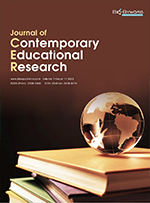Abstract
Wang Yangming was a prominent thinker and politician with significant national influence during the Ming Dynasty. He has been a key subject of study in the realms of China’s ideological history, academic history, and political history. His travels to various regions have been the subject of valuable research. While the contribution of Wang Yangming in Guangxi has historically been less extensive compared to his contributions in places such as Zhejiang, Guizhou, and Jiangxi, it has shown gradual improvement over the past 50 years. Particularly, there has been an expanding and deepening exploration of the wisdom and impact he left during his governance of Guangxi.
References
Gao Y, Li C, 1974, Wang Yangming Reciting Confucianism with a Butcher’s Knife in His Hand. Journal of Guangxi University (Philosophy and Social Sciences Edition), 1974(1): 51–57.
Zhuang N, 1975, Wang Yangming’s Counterrevolutionary Hands and His ‘Mind’ Theory – Revealing Wang Yangming’s Sinful Face in Suppressing the Uprising of the Yao and Zhuang People in Guangxi. Historical Research, 1975(4): 90–95.
Yang S, 1985, A Review of Wang Shouren’s Suppression of Ethnic Minorities in Guangxi. Guangxi Ethnic Studies, 1985(2): 28–34.
Mo J, 1989, On Wang Shouren’s Pacification of Tianzhou. Journal of the Central Institute for Nationalities, 1989(6): 57–62.
Gao Y, Yao S, 1985, Ming Dynasty Bazhai Yao and Zhuang Farmers’ Uprising. Journal of Guangxi University for Nationalities (Philosophy and Social Sciences Edition), 1985(2): 59–65.
Gong Y, 2000, Why Did Wang Shouren Establish Fu Wen Academy in Nanning? Guangxi Local Chronicles, 2000(1): 53–55.
Mai Q, Du C, 2004, Wang Yangming in Guangxi. Wenshi Chunqiu, 2004(6): 38–40.
Li X, 2007, Governing by the Times – The Thought of National Border Governance Since the Ming and Qing Dynasties and the Evolution of Guangxi Tusi System. Inheritance, 2007(7): 83–84 + 92.
Sun X, Qin M, 2010, The Dissemination and Influence of the Educational Ideas of Fu Wen Academy and Wang Shouren’s Academy in Guangxi. Guangxi Social Sciences, 2010(3): 25–28.
Ma G, Li H, 2012, On Wang Yangming’s Governance of the Guizhou Guangxi Tusi Region and Border Stability. Guangxi Ethnic Studies, 2012(4): 116–125.
Ji A, 2013, Wang Yangming and the Governance of Si and Tian Tusi. Guizhou Ethnic Studies, 34(4): 143–146.
Zhao S, Xu X, Zhang T, 2017, Wang Yangming’s Thought and Practice on Governance of Southwest Ethnic Minorities. Guizhou Ethnic Studies, 38(12): 200–204.
Ma G, Xiong Z, 2017, Inheritance and Innovation: A Study of Wang Yangming’s Management and Its Influence on Southwest Ethnic Regions – Centered on Tusi in Shuixi, Sitian, and Yongshun. Guizhou Literature and History Series, 2017(2): 4–15.
Pu Y, 2021, Research on Wang Yangming’s Thought on Governance in Ethnic Regions, thesis, Jishou University.
Hao Y, 2017, Using Xia to Change Yi: Wang Yangming’s Ethnic Education in Guizhou and Guangxi. Wang Xue Research, 2017(1): 358–368.
He D, 2019, Exploration of Conscience Thought and Practice Shown by Wang Yangming during his Guangxi Tour, thesis, Guangxi University.
Fan E, 2021, Exploration of Wang Yangming’s Educational Practice in Guangxi, thesis, Guangxi University.
Ma G, Peng B, 2015, Wang Yangming’s Thought and Practice of ‘Northern Defense and Southern Transformation’ from the Perspective of the Border Defense Situation in the Ming Dynasty. Journal of Guizhou University (Social Science Edition), 33(5): 145–153.
Deng Y, 2015, Research on the Thought of Ethnic Relations in the Ming Dynasty, thesis, Lanzhou University.
Zhou M, 2017, Exploring the Study of Wang Shouren in Guangxi from the Inscription of the ‘Meritorious Essay on Fuxing and Thinking of Tian’. Education and Culture Forum, 9(6): 19–23.
